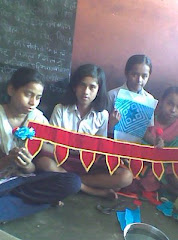By Shree Venkatram
The future of India lies in the health of her children. The latest Human Development Report shows that 47 per cent children are underweight. Over 34 per cent of Indians live on less than Rs 40 a day. The mid-day meal (MDM) scheme is thus a necessity. It is an investment the country makes in the health of its children. But unfortunately, the government’s implementation of the scheme leaves much to be desired in most parts of the country.
Recently, some of our young MPs — keen to understand the malnutrition situation in the country — made jaunts to a few states. Meanwhile, there was a hare-brained suggestion from some quarters to replace a fresh MDM with packed food — like biscuits. Our leaders feel that by doing away with the hot meal,they would be stemming the corruption found to be associated with the programme. It is akin to killing a person because of an ailing organ. It would be funny, if it were not appalling, to see how ignorant some of our leaders are of a government scheme working well in some parts of the country. The advocates of packed meals should visit some villages in Tamil Nadu to see for themselves what a fresh, hot meal can do. The formula adopted by those schools running a successful MDM scheme leaves little room for corruption and has dramatically improved the quality of the meal.
What is this magic remedy? It is the involvement of the mothers of the children in the MDM programme. Along with the teachers, they have a say in the purchase and storage of the food items. The mothers’ group of each school selects from among themselves those who will cook and serve the meals. The cooking is done on the school premises and they ensure that each child gets a hot meal of rice, sambhar and greens or koottu (mixed vegetables). The child carries a plate to school and after eating, washes and takes it home to bring it again the next day.
The scheme is working so well that the balanced nutritious meal comes for (hold your breath) just Rs 5 a day for each child. Tamil Nadu has an MDM committee, which has drawn up a weekly menu, providing for variety and ensuring that the children get balanced nutritious meals. The involvement of the mothers in the meal programme has had many positive spin-offs. Their presence on the school premises and the constant and regular monitoring by the state authorities ensure that teachers do not absent themselves from work and classes are run on a regular basis. The INDUS project launched by the Indian government in 21 districts of the country to eliminate child labour has found that involving mothers in the MDM programme has brought the children into schools faster than any other scheme. In districts with high instances of child labour like Virudhunagar and Namakkal for example, involving the mothers has promoted teacher-parent interaction, thus benefiting the child. In some areas, NGOs have joined hands with the government in running special schools for mainstreaming child labourers. Some of them have managed to raise additional resources so that each child can be given a glass of milk or a mid-morning snack. In some of these special schools, an afternoon snack in the form of a cup of groundnuts, cooked beans or Bengal gram has been introduced providing an additional helping of much-needed protein. The mothers involved in the cooking programme are given a monthly stipend, which goes into augmenting the household income. Another big plus is that children from different religions and castes eat food cooked and served from a common pot. They sit together, breaking bread, and caste barriers. So let us hand over the reins of the MDM programme elsewhere in the country too to the mothers. They will ensure that their children get adequate nutrition and also attend school regularly. At stake is much more than a mid-day meal scheme.
The writer is a consultant with the International Labour Organisation.
The article first appeared in The Times of India
Wednesday 11 February 2009
Subscribe to:
Post Comments (Atom)
.jpg)




+(2).jpg)


No comments:
Post a Comment